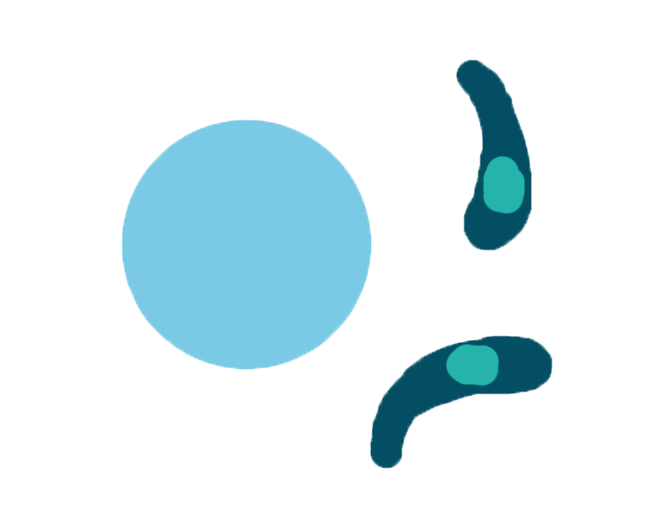Sporozoan Antibodies: Apicomplexa

- On This Page
- Overview
- Plasmodium falciparum
- Cryptosporidium
- Toxoplasma gondii
Overview
We offer antibodies which detect Sporozoans, these species sit within the group called Apicomplexa, which are classified to have no locomotion in the adult form of their life cycle. Our products include antibodies for Plasmodium, Cryptosporidium, and Toxoplasma parasites. These protozoans are involved in a wide variety of human diseases.
Protozoans are challenging to research due to their complex life cycles. Their life cycle stage often requires an alternative cultivation, diagnosis, and target antigens. This makes the selection of the correct antibody even more important. Please contact our Technical Support team if you require any help or advice.
Plasmodium falciparum
Plasmodium falciparum is a protozoan parasite which causes malaria in humans, and is spread via a female mosquito vector. Several of our antibodies for malaria diagnostics have been produced using the HuCAL technology to create thermostable monoclonal antibodies.

Cryptosporidium
Cryptosporidium is a protozoan which causes the gastrointestinal illness called cryptosporidiosis, and is commonly spread via infected water.
Cryptosporidium antibodies
- Mouse anti Cryptosporidium, clone BEL 0126, recognizes a membrane antigen expressed by the oocysts of Cryptosporidium sp.
- Mouse anti Cryptosporidium parvum, clone 7631, detects the protozoa Cryptosporidium parvum.
Toxoplasma gondii
Toxoplasma gondii is an obligate intracellular protozoan parasite that enters its host via the gastrointestinal tract and causes the disease toxoplasmosis. The definitive host of T. gondii is cats, but it can also be carried by a vast number of warm-blooded animals, including humans.

Toxoplasma gondii antibodies
- Rabbit anti Toxoplasma gondii RH strain, recognizes purified trophozoites.
- Goat anti Toxoplasma gondii, AHP1084 polyclonal antibody detects the virulent RH strain and is specific for the tachyzoites infectious stage in the T. gondii life cycle.
- Mouse anti Toxoplasma gondii P30, clone TP3 (P30/3), is specific for the P30 membrane protein.
Toxoplasma gondii recombinant proteins
- Recombinant Toxoplasma gondii, P29 GRA7 (aa24-100), an Escherichia coli-derived recombinant protein corresponding to amino acids 24-100 of Toxoplasma gondii dense granule protein 7 (p29/GRA7).
- Recombinant Toxoplasma gondii, P30 SAG1 (aa45-198), an E. coli derived recombinant Toxoplasma gondii P30 (sag1) immunodominant region.





